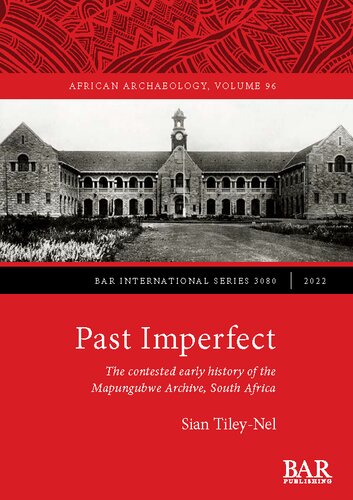

Most ebook files are in PDF format, so you can easily read them using various software such as Foxit Reader or directly on the Google Chrome browser.
Some ebook files are released by publishers in other formats such as .awz, .mobi, .epub, .fb2, etc. You may need to install specific software to read these formats on mobile/PC, such as Calibre.
Please read the tutorial at this link: https://ebookbell.com/faq
We offer FREE conversion to the popular formats you request; however, this may take some time. Therefore, right after payment, please email us, and we will try to provide the service as quickly as possible.
For some exceptional file formats or broken links (if any), please refrain from opening any disputes. Instead, email us first, and we will try to assist within a maximum of 6 hours.
EbookBell Team

5.0
20 reviewsThis book interrogates the context, primary literature and silent gaps in the Mapungubwe Archive held at the University of Pretoria. It examines the multiple narratives and ignored indigenous histories of Mapungubwe in South Africa, prior to the scientific gold discovery of 1933. Using postmodern notions of archival theory and science as a central argument, the author demonstrates how the Mapungubwe Archive needs to be questioned, not only as a historical source, but as point of contemporary discourse within global trends of the archival turn and lack of knowledge, specifically on African archives. The book elucidates the origins, research control, powers and authoritative trajectory of Mapungubwe’s colonial and nationalist past, through the institutional lens of the Archaeology Committee. Contestation is focused on Mapungubwe’s controlled history as a ‘treasure trove’ in 1933 under the State and how later, research mirrors present legal heritage debates on reversionary rights of ownership versus responsible rights of stewardship. Using the conceptual notion of history as an imperfect past, the author contends that Mapungubwe’s contested past is inherently unfinished and flawed, because the past constantly challenges ideas of the present.